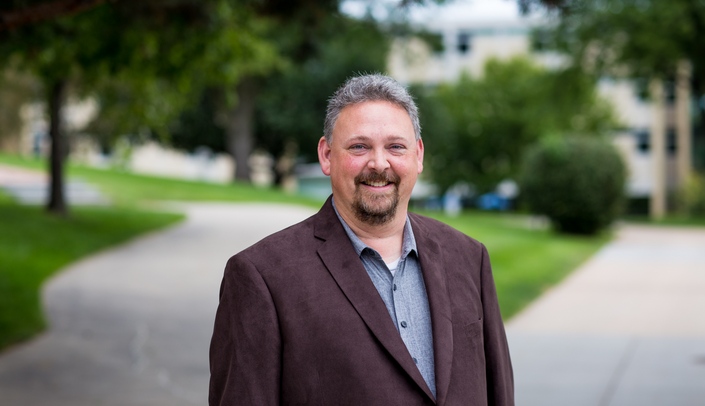Jeff Keyte, M.D., isn’t your typical NE-INBRE steering committee member.
For one thing, he is a pediatrician who earned his bachelor’s degree in psychology from the University of Chicago in 1996 and his medical degree from St. Louis University School of Medicine in 2001, followed by a three-year internship and residency in pediatrics at Cardinal Glennon Children’s Hospital.
He does, however, share one important factor with every person associated with the NE-INBRE program.
A love of science.
"I was drawn to science because of a quest for the truth," Dr. Keyte said. "Science provides a path to finding real answers through observation and not just through consideration."
After spending four years in active duty as a general pediatrician for the navy at the Naval Hospital in Lemoore Calif., Dr. Keyte realized he enjoyed the teaching aspect of his job more than the medical.
So he decided to pursue a career in academics, first teaching in various adjunct positions before landing a job among the biology faculty at the College of Saint Mary in in 2009.
Today, Dr. Keyte is the associate dean of the division of arts and sciences and professional studies at the college, where he is in charge of a wide-range of professionals from psychologists to chemists.
At the beginning of last year, Dr. Keyte was appointed steering committee member for the NE-INBRE program.
"It’s a popular program," Dr. Keyte said.
The most exciting aspect of it, he said, is the opportunity the students get for experiential learning.
"We learn by doing and I think the research opportunities for students are going to enrich their learning in significant ways," Dr. Keyte said.
Programs such as INBRE that are built to have a ripple effect are especially important, he said, for those undergraduate students who are involved in it as scholars and those who aren’t but are taught by INBRE-supported faculty.
"It has multiple benefits," Dr. Keyte said.
The NE-INBRE program also affords the faculty and students access to the expertise and mentorship of researchers at other participating institutions as well as the use of core facilities.
"We get to have these connections with a level of research capacity that we would never be able to attain for an institution of our size," Dr. Keyte said. "It’s fantastic."
